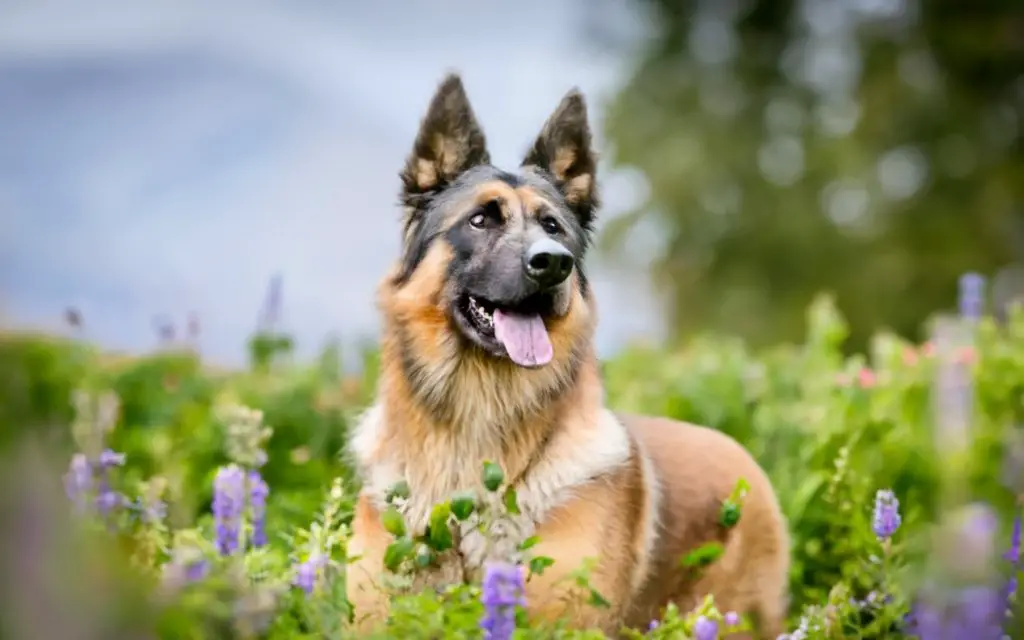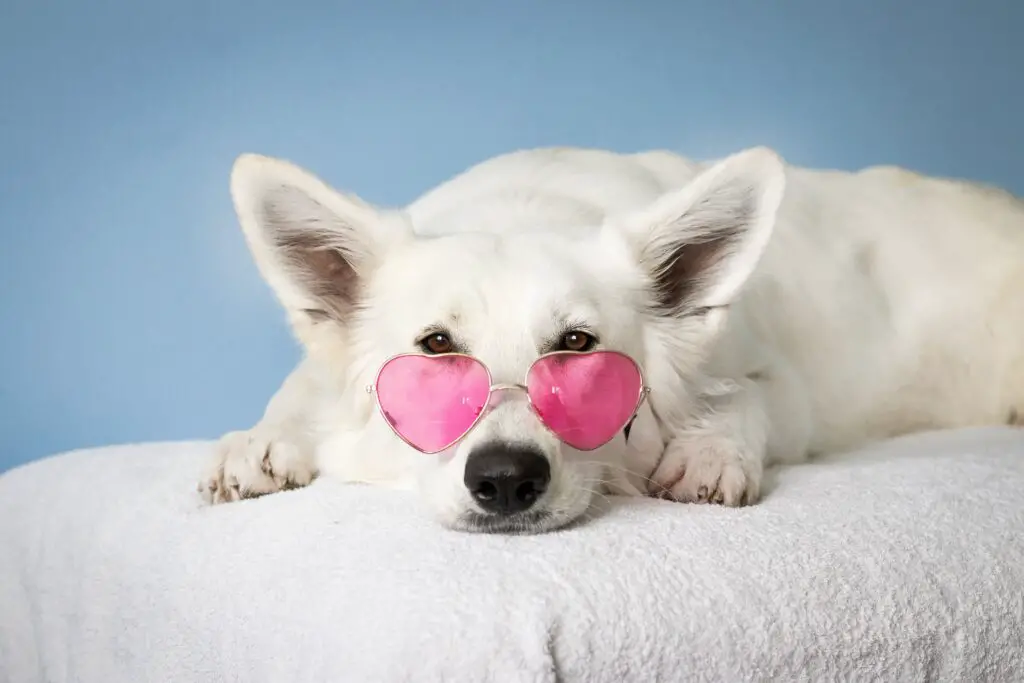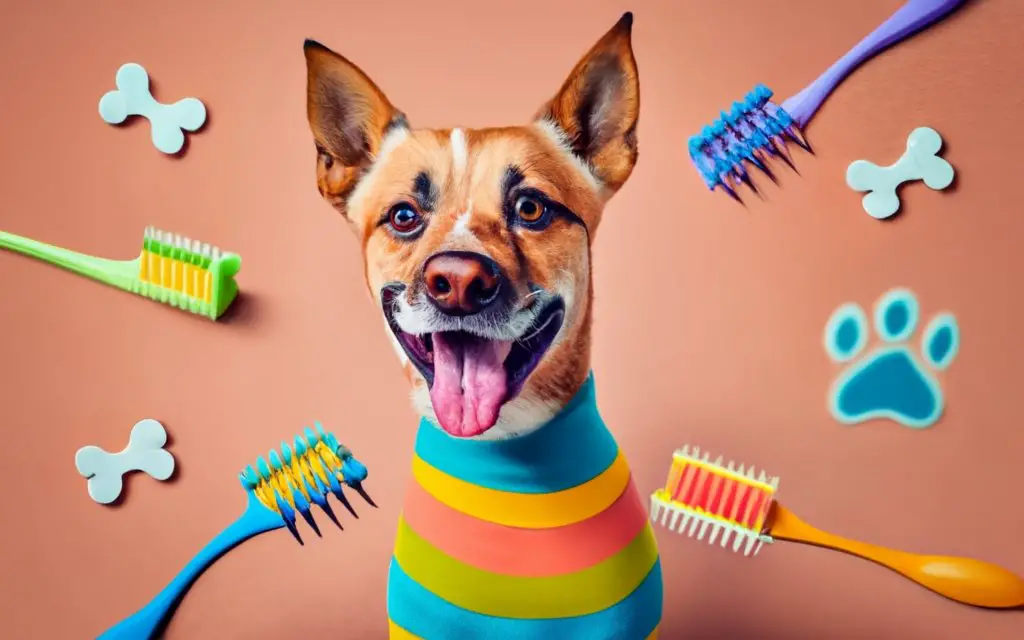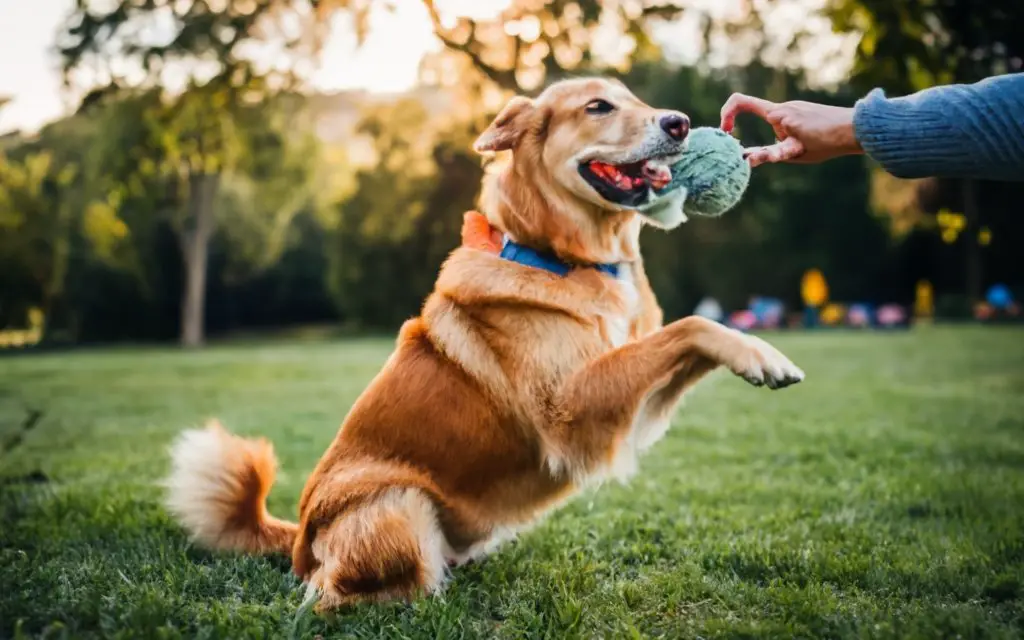How long can a dog go without water? This question, while seemingly simple, holds immense value for every dog owner. Water, the elixir of life, plays a pivotal role in maintaining the health and vitality of our furry friends.This guide explores why hydration is essential, the risks of dehydration, and how to ensure your pup stays happy and healthy.
Why is Hydration Important for Dogs?
Hydration for dogs is not just important, it’s essential.Water is the foundation of life, and it’s just as important for your dog as it is for you. It plays a important role in various bodily functions, including:

- Aiding digestion: Water helps break down food and move it through the digestive system.
- Maintaining body temperature: Dogs regulate their temperature by panting, and water is essential for this process.
- Lubricating joints: Water keeps your dog’s joints healthy and pain-free.
- Transporting nutrients: Water carries vital nutrients throughout the body, ensuring all systems function properly.Without enough water, a dog’s organs can’t function properly, and they may become weak, dizzy, and even experience organ failure.
How Much Water Does My Dog Need?
While there’s no one-size-fits-all answer, a general guideline is that dogs need around 1 ounce of water per pound of body weight per day. However, several factors can influence your dog’s individual needs:
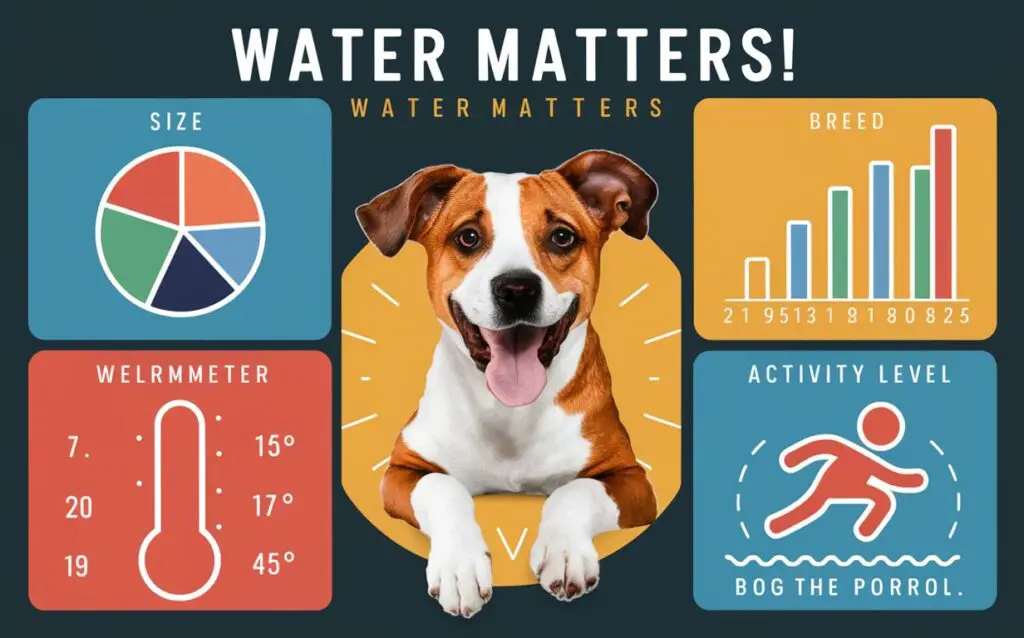
Breed and Size
Breed and size play a vital role in determining a dog’s water needs. Larger breeds and active breeds typically require more water than smaller or less active ones. Understanding your dog’s breed-specific needs can help ensure they stay adequately hydrated.
Diet
Diet also influences a dog’s hydration. Dogs on a dry food diet may need more water than those on a wet food diet. It’s important to consider this when planning your dog’s meals.
Activity Level
Activity level is another crucial factor. Active dogs that exercise regularly will need more water to replenish the fluids lost through panting and sweating.
Weather and Temperature
Finally, the weather and temperature can greatly impact a dog’s hydration needs. In hot weather, dogs are at a higher risk of dehydration and may need more water than usual. Always ensure your dog has access to fresh water, especially in hot conditions.
How Long Can a Dog Go Without Water?
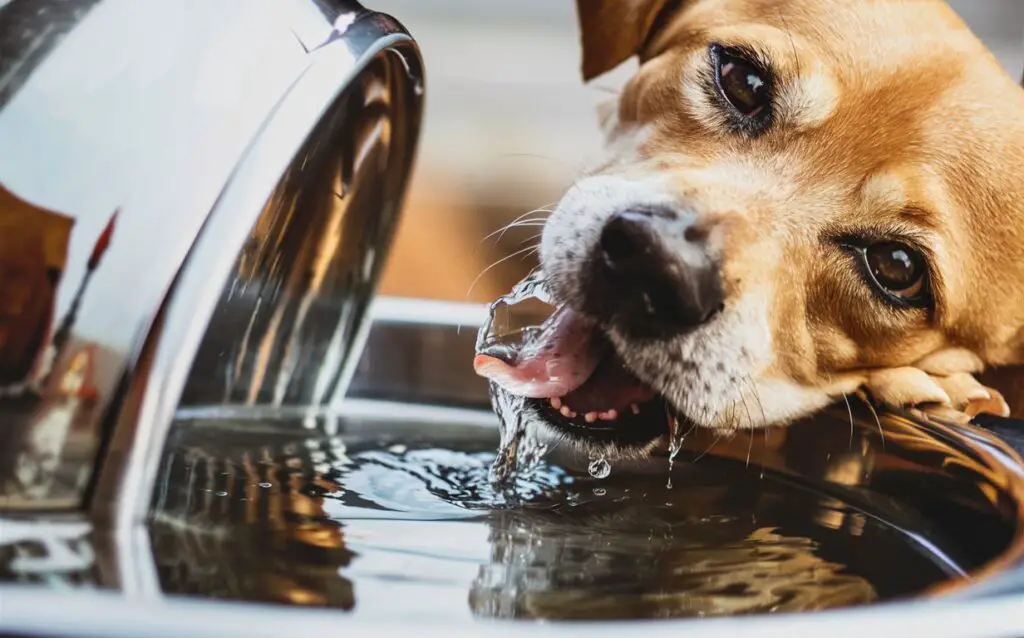
This is a crucial question for all dog owners to understand. While it varies depending on the dog’s health, age, and the environmental conditions, a healthy dog in normal circumstances can typically survive for 2-3 days without water. However, this doesn’t mean it’s safe or advisable. Dehydration can set in quickly, leading to serious health risks such as kidney failure, loss of consciousness, and in severe cases, it can be fatal. Therefore, it’s imperative to ensure your dog has access to fresh water at all times and to monitor their hydration levels regularly. In the following sections, we’ll discuss the signs of dehydration in dogs and what to do if your dog is dehydrated.
Signs of Dehydration in Dogs
Recognizing the signs of dehydration in dogs is a vital skill for every dog owner. Symptoms can range from subtle changes like a loss of appetite or lethargy to more noticeable signs such as sunken eyes, dry gums, and excessive panting. In severe cases, dogs may even collapse. It’s important to regularly check your dog for these signs especially during hot weather or after exercise. If you suspect your dog is dehydrated, it’s essential to seek veterinary help immediately.
What to Do If Your Dog Is Dehydrated
If you suspect your dog is dehydrated, it’s crucial to take immediate action. Start by providing your dog with small amounts of water to drink. Don’t allow them to gulp water rapidly as it could lead to vomiting, further complicating their condition. If your dog is unwilling or unable to drink, try offering them an ice cube to lick or a wet food diet to increase their fluid intake. However, these are just initial steps. Dehydration can be a serious condition, and it’s essential to seek veterinary help as soon as possible. A vet can provide appropriate treatment, which may include fluid therapy, depending on the severity of the dehydration.
Remember, prevention is always better than cure. Regularly monitor your dog’s hydration status to ensure they stay healthy and happy.
Tips for Keeping Your Dog Hydrated
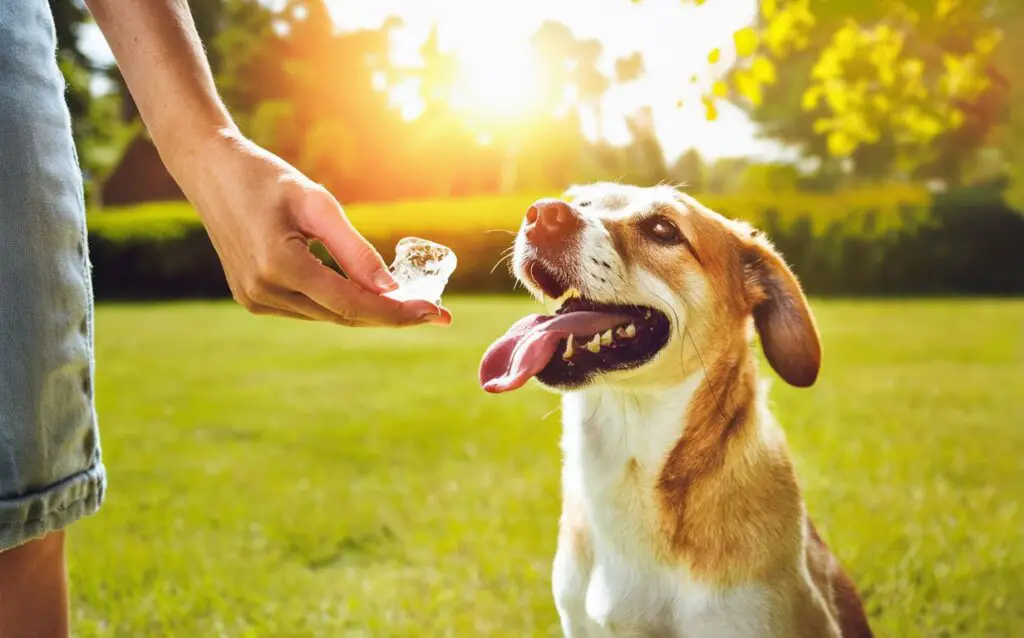
Keeping your dog hydrated is not just about providing water; it’s about making hydration an easy habit to adopt as part of their daily routine. Here are some practical tips:
- Make Water Available: Always have fresh water available for your dog. Whether you’re at home or out for a walk, make sure your dog has access to clean drinking water.
- Consider Wet Food or Hydrating Treats: Consider incorporating wet food or hydrating treats into your dog’s diet. Both options offer additional moisture to help maintain their hydration levels.
- Monitor Water Intake: Keep an eye on how much water your dog drinks daily. This can help you notice any changes that might indicate a problem.
- Regular Vet Check-ups: Schedule regular vet check-ups. Your vet can provide personalized advice based on your dog’s specific needs and catch any potential hydration issues early.Remember, a hydrated dog is a happy and healthy dog. Make hydration a priority, and your furry friend will thank you!
Conclusion
Just like for humans, water is essential for a dog’s well-being. Knowing why hydration is important, recognizing the warning signs of dehydration, and implementing simple habits to keep your dog hydrated are all key to ensuring your furry friend stays happy and healthy. Always make sure fresh water is readily available, and don’t hesitate to consult your veterinarian if you have any concerns about your dog’s hydration or overall health. With a little knowledge and care, you can help your dog flourish and experience all life’s adventures by your side


